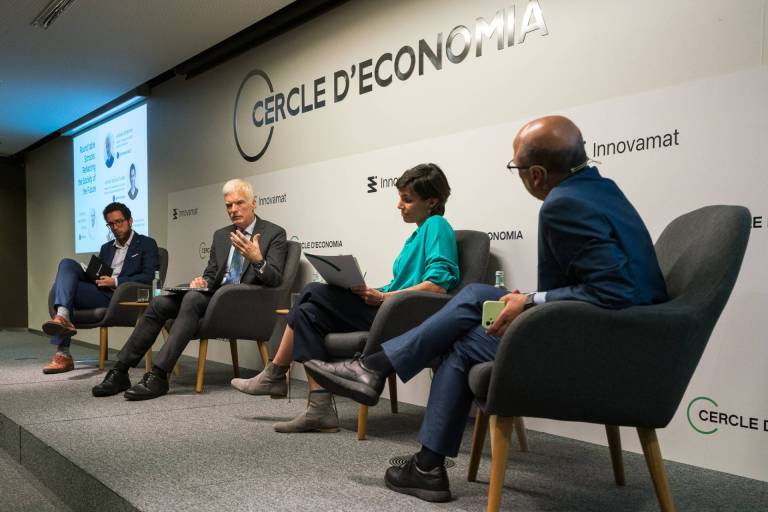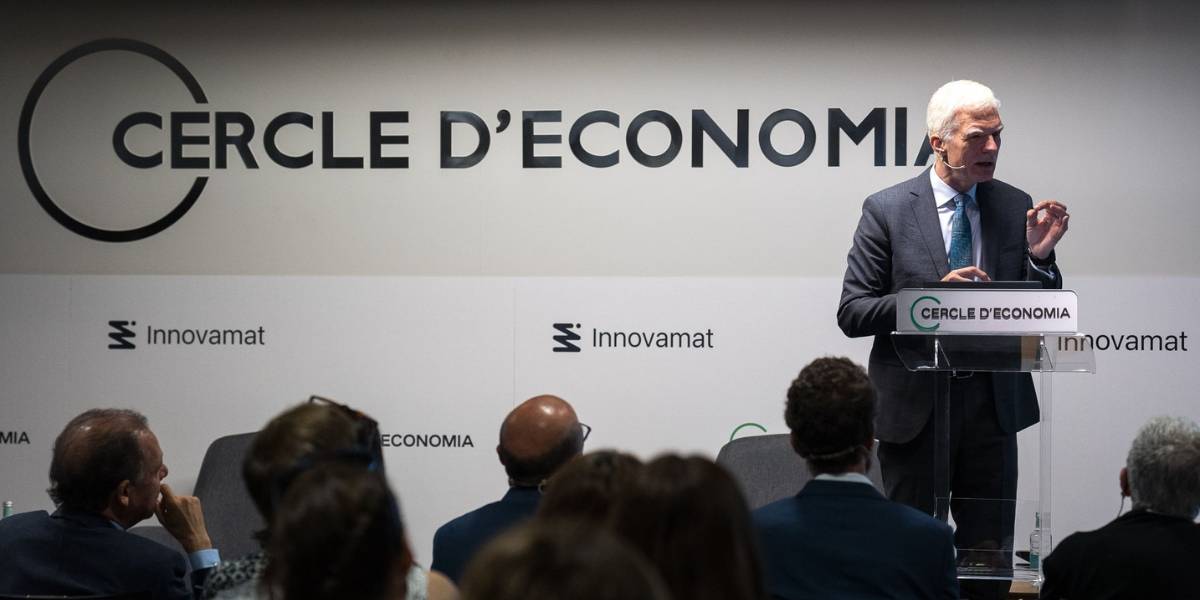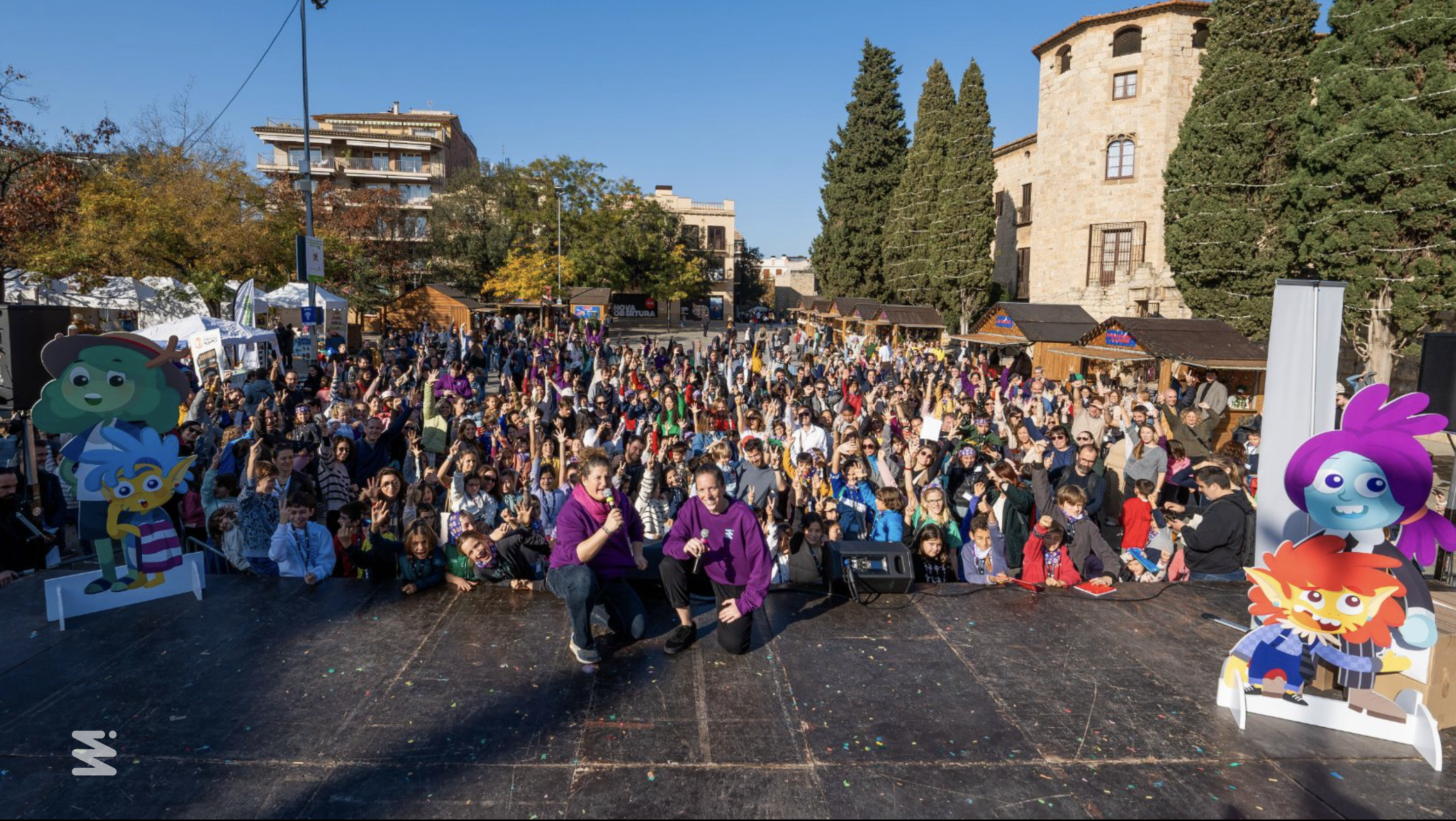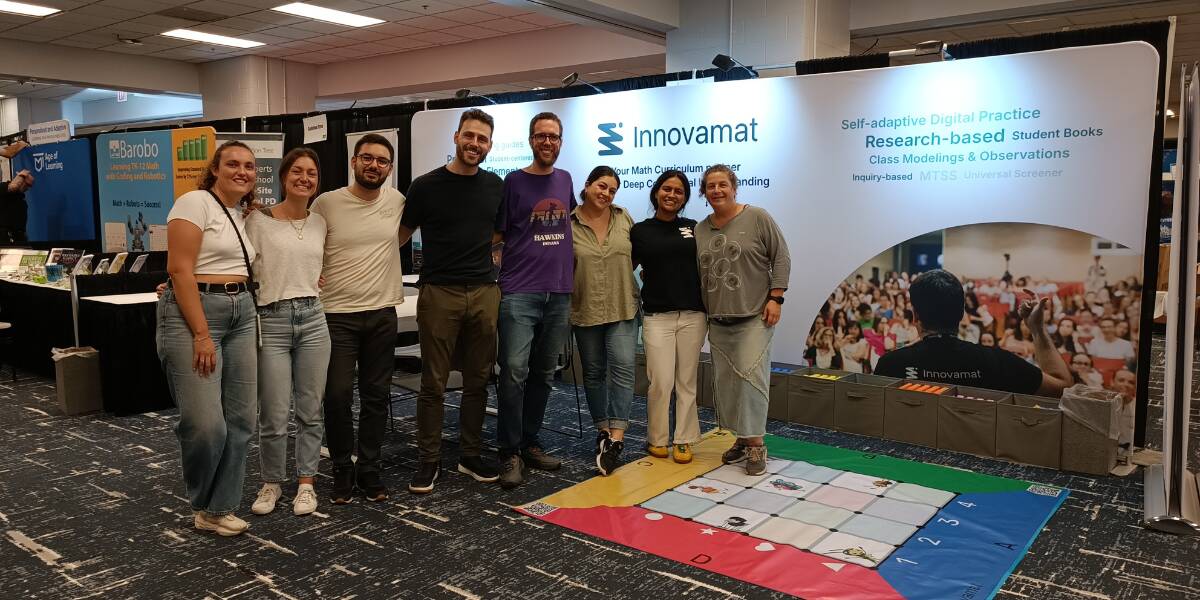The publication of the PISA report has led to a polarization of opinions regarding competency-based learning. For this reason it was so important for us to organize, together with the Cercle d’Economia Foundation, a meeting with Andreas Schleicher, Director of Education at the OECD and creator and coordinator of the PISA tests, along with the educational community. It was essential to hear first-hand his interpretation of the results of the PISA report, published last December. According to Schleicher, we must promote competency-based learning in the classroom: “It’s not about students just reproducing what they already know. Teachers must pose appropriate questions so that students can reason and apply what they have learned in school to other contexts.”
Prior to the event, I was able to attend the round table discussion ‘Education as a Lever for Productivity‘, which Schleicher ran at the RCE at the Palacio de Congresos in Barcelona. During this round table, he made a comprehensive comparison of education in different countries. “It can be said that, in many cases, the current system prepares students for the past, but not for the future. Education has to help you understand what is important to you, what you can really excel at and what the world needs from you,” he said.
8 Conclusions from Andreas Schleicher for Improving Education
The director of the PISA tests offered us a set of guidelines to follow in order to adapt our educational system, with the aim of preparing students to develop reasoning and critical thinking. And in this way, guide them to face their future with the maximum number of guarantees possible. Below, I will share with you some of the ideas that can serve as a guide to know which direction educational centers should follow:

1. It is not enough to simply reproduce knowledge; students must know how to apply it in real life.
2. Less is more: teaching fewer things but more in depth
According to Schleicher, “we need to teach fewer things, but more in depth.” This is the only way to ensure that our students both understand and comprehend the concepts being taught. Both in Catalonia and in Spain, we have achieved a minimum level for all students, but very few reach the highest level of the results curve. In fact, in an interview conducted by the newspaper Ara (in Spanish), Schleicher emphasizes that “students in Catalonia learn too many things without enough depth. Here I have seen classrooms where 17 or 18 math problems are taught in a single lesson, while in Japan they never work on more than one idea per lesson. In this way we transmit learning that is a mile long but only an inch deep. You can accumulate all the knowledge you want, but if you don’t have the basic foundation, it won’t do you any good”.
3. Foster critical thinking, development of competencies, and a growth mindset in students.
Society no longer rewards people for their knowledge, but for what they are able to do with that knowledge. In the same vein, the father of PISA explained that the easiest things to teach are also the easiest to digitize and automate. For this reason, he announced that in 2025 the PISA tests will allow access to the Internet (El Periódico, in Spanish), so that students can access the information they need. They will then have to be effective at thinking about how to use it in the best possible way.
In order to improve, instead of accumulating content without depth, we must focus more on developing key skills for our students’ future, such as observing, discovering, connecting ideas and problem-solving. In fact, I recommend that you also read the analysis of the mathematical problems posed by the PISA tests and their results by Laura Morera, PhD in the didactics of mathematics and a professor at the UOC, to see how we can improve them.
The PISA data also shows that students usually think that success in life depends only on one’s intelligence, as they do in Catalonia, for example. It is crucial to foster a growth mindset among students, helping them to see that they can reach their full potential through effort and dedication.
4. Responding to the needs of students so that they can reach their full potential
“I know there has been a lot of debate at the regional and national level about schooling variability between public schools, private schools, good schools, not so good schools… The truth is that only 15% of the variability of school performance in Catalonia has to do with the school. Most of the variation happens within each school, and it usually goes unnoticed,” Schleicher said. Looking at this data, it is clear that schools need to be much more responsive to the individual needs of each student.
Morera, in the article in which he shares his reflections (in Spanish) on the event, comments that it is essential for teachers to know their students better in order to be able to help them. We cannot continue to teach the same curriculum in the same way to all students. Schleicher emphasized that educational success is not about everyone achieving the same results, but about each student reaching his or her maximum potential, decoupling success from its socioeconomic context. “You often only have one shot in life: find a good teacher and a good school. And if you miss that train, everything in life will go against you, because without a good education you don’t get a good job and you don’t get a good social network of support,” Schleicher stresses in an interview with the newspaper El País (in Spanish).

5. To make teaching an intellectually appealing profession.
One of the key aspects, most emphasized by Schleicher for improving the education system, was to make the teaching profession intellectually appealing. It is vital that teachers feel that they can bring about change in the education system. We need to foster a collaborative culture among teachers: to be able to observe each other teaching, design classes collaboratively or even spend time with students outside the classroom to get to know them and be able to better accompany them.
6. Reason more and repeat less
Verónica Sánchez stressed that it is not so important that students know how to find the right answer, but how they get to it. And here is where the teacher plays a fundamental role in guiding students’ learning process, asking good questions and encouraging reasoning and the connection of ideas. “We teach science as if it were a religion, we teach students to believe scientific theories and give them lots of exercises to practice. Science is not about reproducing what we already know, but about questioning what we know,” Schleicher emphasized.
In his interview with the newspaper El País (in Spanish), Schleicher explains that: “curiosity and a critical spirit must be encouraged; students must have their own projects, their own ideas and have room to experiment“.
7. Promote ongoing teacher training
I have always believed that learning has to be an ongoing task, never an achieved goal. “We used to learn to do a job. Today, learning is the job,” Schleicher remarked. Teachers have to train continuously to be able to guide their students in the most effective way and to be able to adapt to an ever-changing reality.
We must rethink the role of teachers and the distribution of their time. You must be able to dedicate specific time to each student independently, developing strong relationships and helping them reflect on their future and how to work towards their goals on a daily basis.
8. Involve the entire educational community and bring research into the classroom.
All these points cannot be carried out without the involvement of the entire educational community. We have to involve society as a whole in this transformative process. Families need to be major contributors to the educational community.
We also cannot forget to transfer research in the didactics of mathematics to the classroom. In this regard, Albert Vilalta pointed out that this is one of the great challenges of today. “It is essential that those on the front lines, the teachers, can be alert to how the world is changing. They have to create a good classroom environment and connect learning to the real world,” Schleicher remarked. This is the only way to prepare students for the future.
I highly recommend you watch Schleicher’s presentation and the round table that we held. It is essential to be able to generate spaces that promote dialogue around the evolution of education. We have to educate young people with their future in mind, not the past.





